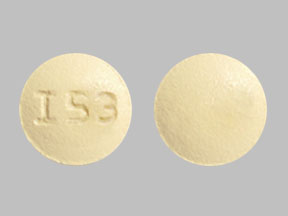
Amerge Coupons & Savings Card – Discount Prices from $38.72
Brand for: Naratriptan
My prescription
Edit
1MG, Naratriptan (30 Tablets)
Select pharmacy

CVS
$39.58
COUPON PRICE
Walmart
$38.72
COUPON PRICE
Albertsons
$70.72
COUPON PRICE
Walgreens
$78.90
COUPON PRICEAmerge savings card
Show this card to your pharmacist
Walmart
$38.72
BIN
ID
PCN
GRP
019876
LHA66EDD27
CHIPPO
LHX
Powered by
Related triptans prescriptions
More prescriptions for migraine
Related triptans prescriptions
More prescriptions for migraine
Amerge (Naratriptan) dosage forms
Dosage Quantity Price from Per unit 1MG 30 Tablets $38.72 $1.29 1MG 9 Tablets $11.42 $1.27 2.5MG 1 Tablet $3.97 $3.97 2.5MG 9 Tablets $15.76 $1.75
| Dosage | Quantity | Price from | Per unit |
|---|---|---|---|
| 1MG | 30 Tablets | $38.72 | $1.29 |
| 1MG | 9 Tablets | $11.42 | $1.27 |
| 2.5MG | 1 Tablet | $3.97 | $3.97 |
| 2.5MG | 9 Tablets | $15.76 | $1.75 |
What is Amerge used for?
Amerge is used for the acute treatment of migraine attacks with or without aura in adults. It is not intended for the prophylactic therapy of migraine or for the management of hemiplegic or basilar migraine.
Is Amerge still available?
Yes, Amerge (naratriptan) is still available. It is a medication used to treat migraine headaches. However, availability can vary by location and pharmacy, so it is advisable to check with local pharmacies or healthcare providers for the most current information.
What is another name for naratriptan?
Another name for naratriptan is Amerge.
Is Amerge good for migraines?
Amerge, also known as naratriptan, is a medication that can be effective for treating migraines. It belongs to a class of drugs called triptans, which work by narrowing blood vessels around the brain and reducing substances in the body that can trigger migraine symptoms. It is typically used to relieve migraine headaches once they have started, but it is not intended for prevention or for treating other types of headaches. As with any medication, it is important for individuals to consult with their healthcare provider to determine if Amerge is appropriate for their specific condition.
Does naratriptan make you sleepy?
Yes, naratriptan can cause drowsiness or sleepiness as a side effect. It is important for individuals taking this medication to be aware of how it affects them before engaging in activities that require alertness, such as driving or operating machinery. If excessive drowsiness occurs, it is advisable to consult a healthcare professional.
